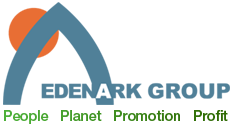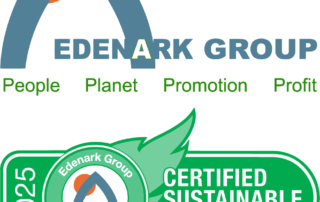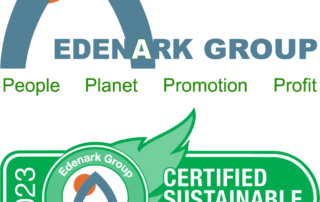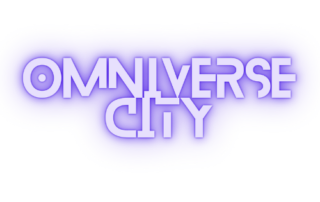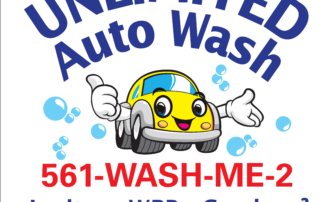Find and see the best corporate environmental sustainability news, posts and stories here, at Edenark Group’s “IN THE NEWS.” Let us know if you have environmental sustainability news you would like us to add.
Gym for the Brain versus Hyperbaric Chambers
Do you know someone who uses hyperbaric chamber services?
Gym for the Brain has many clients who have come to us after previously using hyperbaric chamber services. That we know of, we have no clients who have left Gym in favor of hyperbaric chamber services.
Based on industry studies and client feedback, here are the main reasons people have left hyperbaric chamber services in favor of Gym for the Brain:
- Gym for the Brain uses contrast oxygen which is more beneficial for improved performance, repair and recovery than hyperbaric chamber oxygen
- Gym for the Brain has seven additional stations that work synergistically with contrast oxygen and further enhance the client benefit
- Gym for the Brain is materially less expensive
- Gym for the Brain requires fewer sessions for the client to notice benefit
- Gym for the Brain does not require being inside an enclosed tube
- Finally, Gym for the Brain does not use pressurized oxygen that is required for hyperbaric chambers, eliminating the risk of oxygen canister explosions, like this one
If you know someone who is using hyperbaric chamber services, suggest they consider Gym for the Brain.
Are you looking for Funding? Have you considered becoming an Impact Company?
If you are looking for funding or investment in your company, have you considered becoming an Impact Company?
WholesalePayroll (www.wholesalepayroll.com) has been approved for charitable investing through donor-advised funds, offering a unique opportunity for investors looking to maximize the impact of their charitable contributions.
This initiative benefits WholesalePayroll by providing increased capital resources to support its growth. For donors, the advantage lies in investing in a company that has the potential to multiply their investment and align with their charitable values.
WholesalePayroll provides accounting professionals with a payroll solution that delivers a 2x-3x increase in profitability, along with enhanced efficiency and improved service delivery. Beyond revolutionizing the payroll industry with its scalable platform, WholesalePayroll is deeply committed to environmental and community stewardship. Since 2022, the company has been certified as an environmentally sustainable business under the Edenark Group (www.edenark.com) ISO 14001 program.
AnchoRRa (www.anchorra.org) facilitates an impact fund for local charitable giving, enabling donors to make tax-deductible contributions that drive social and environmental benefits while also generating financial returns. Donors can choose where their investments are allocated, and any investment growth remains tax-free. AnchoRRa then channels the original donation and any tax-free growth to donor-selected charities via grants.
Thanks to its sustainability certification and commitment to environmental stewardship, WholesalePayroll qualifies as an Impact Company under the AnchoRRa Impact Investment Donor-Advised Funds Platform.
“Some money is greener than others,” said Al Wagner, CEO of WholesalePayroll. ” This gives us the opportunity to grow with an investment from people who share the same worldview as we do; that a company should not only provide a great service at a great price but also participate in the community and environment.”
“We are thrilled to include WholesalePayroll as an Impact Company and offer it as an option to our Impact Investors,” said Jennifer Vanderdonckt, Finance Director & Charitable Investor Relations for AnchoRRa. “This is exactly the type of organization we are eager to support.”
“As the world community increases its support of environmental sustainability, more doors will open, and more opportunities, like the AnchoRRa Impact Fund, will be available to companies certified under a globally recognized program,” said David Goodman, CEO of Edenark Group. “We enjoy seeing the recognition and value our clients gain from their certifications.”
Climate Superfunds
On 26 December, 2024, the State of New York became the second state, behind Vermont, to enact into law a Climate Superfund.
California, Massachusetts and New Jersey are next up.
These laws aim to hold fossil fuel companies liable for a portion of the climate change costs within a state and were modeled after federal Superfund legislation.
The New York Superfund hopes to collect $3 billion a year, for 25 years. The money is expected to come from organizations that produced the most greenhouse gas emissions in New York between 2000 and 2018.
The targeted companies will vigorously defend themselves in court and it remains to be seen who will win. However, a recent Supreme Court decision to reject a defendant appeal on a similar carbon emissions suit in Hawaii suggests the state Superfunds have a fighting chance of success.
If the Superfunds survive their day in court, we will then see a ‘run on the bank’ as more states will rush to put Superfunds into law. States will then be divided between givers and takers – the givers being the states that are paying more for fossil fuel but do not have a superfund; and the takers will be the states that have the superfunds.
Genergy Site Services, Inc. has renewed its Environmental Sustainability Certification through 2025
Genergy Energy Services, Inc. dba Genergy is a NY-based, AI-powered, sub-metering solutions provider to property managers and businesses. The company has continued its environmental sustainability commitment by renewing and extending its Edenark Group ISO 14001 sustainability certification through 2025.
The Edenark Group ISO 14001 is the world’s premier environmental sustainability certification program and allows SMEs (small to mid-sized enterprises) the ability to attain the world’s most popular environmental certification standard via a program designed and priced specifically for them. Edenark Group also helps clients pursue carbon neutrality and ESG compliance, using the Edenark Group ISO 14001 as a foundation for long term compliance.
The program, which allows companies to progressively improve at a pace that works for their needs, helps the organization define how it interacts internally, externally, and with the environment. It incorporates energy/waste/water, employee health and performance enhancement, community involvement, procurement and suppliers, compliance and regulations, emergency/security, and stakeholder engagement. Benefits include creating a culture of continual improvement, stakeholder engagement, lower costs, higher revenues and profits, improved employee performance, and…… doing the right thing for the environment and current and future generations.
“We are a leader in our space and our innovative approach to infrastructure management helps commercial real estate owners set and achieve their sustainability goals,” says Dario Gristina, CEO of Genergy Site Solutions, Inc. “We are passionate about all businesses and buildings, no matter what their size, having a profitable sustainability program. We also recognize the impact Scope 3 and other regulations will have on organizations; and are a solution for our clients who, as part of their own sustainability programs, need their vendors to also be certified sustainable.”
“In 2024 our team was able to work on over 10 projects, including reducing emissions, adding plants, combining deliveries, going to chemical-free cleaning supplies, and reaching out to vendors regarding their sustainability commitment. Further, the Green Team has an exciting list of projects scheduled for 2025,” added Gristina.
“Genergy Site Services, Inc. is a wonderful example of what the world needs more of – an organization that produces a superior product, supports its current stakeholders, shows it cares about future generations via its commitment to sustainability certification, ensures that it is ahead of the compliance curve for the benefit of its clients, and makes more money due to its sustainability programs,” said David Goodman, CEO of Edenark Group. “When an organization executes the Edenark Group ISO 14001 sustainability certification, as Genergy Site Services, Inc. is doing, it not only benefits the environment, but it also benefits its own operation,” added Goodman.
Genergy Site Solutions, Inc. can be reached at +1.222.664.7600
Edenark Group can be reached at +1 561.512.2257
Does your Business have a Sustainability Expert on your Board?
Per this study of +1,000 small business leaders, having a sustainability expert on the board of directors is second only to having a financial expert…and ahead of expertise in sales, marketing, IT, operations, legal, ex cetera.
- The first thing many of you will say is, “We don’t even have a formalized board of directors. We have a board of advisors.”
- Regardless of the form of your board, point is, having an expert on sustainability as part of that group is essential to your go-forward success due to market demand, opportunity and risk.
Edenark Group serves as sustainability advisor to every client it has; and sits on the client’s Green Team. Given that the Edenark Group ISO 14001 program delivers a positive ROI, this is a very cost-effective way to have a sustainability expert advise the leadership of your organization.
If you would like to talk with us about having a sustainability expert for your board of directors or board of advisors, send us a note via this form.
Are you Doing the Right Thing? Is it Leading to a Good Thing? Check out the Omniverse City Story
Charlene Nichols, the founder of Omniverse City, sought a unique approach to stand out in the market. With a strong belief in sustainability mixed with her desire to be a thought leader, she decided to make that commitment tangible. This led her to pursue the Edenark Group ISO14001 environmental sustainability certification.
Part of Edenark Group’s unique program includes PROMOTION of the certification. Omiverse City’s experience is an example of the immense value every client gains during the Edenark Group onboarding process; then, throughout the term of the relationship.
“It is hard for a SME to cost-effectively stand out from the clutter – finding something that resonates with consumers…having that topic not be a one-off….then being able to afford to deliver it. This is why we provide the promotion side of our service”, said David Goodman, founder of Edenark Group. “The market wants to hear that your company is committed to sustainability and 7 out of 10 consumers will move their purchases if they find a certified sustainable company. There is nothing as powerful in generating market interest and positive response as being able to say you are a certified sustainable company.”
Edenark Group commits to doing regular promotional executions for its clients throughout the term of the relationship, which can be years – an approach that sets it apart from others in the industry.
As an example, as soon as the contract was inked, Edenark Group developed and published a press release on Omiverse City’s desire to become a certified sustainable organization. .
The initial press release alone generated more promotional click-value for Omniverse City than the entire cost of the Edenark Group ISO 14001 certification. Net, just off that first promotion, Omniverse City has a positive ROI…..before it is even certified.
Besides the advertising ROI, as a young company looking to stand out from the crowd, the Edenark Group promotion delivered on broad market impact, as it went out via Edenark Group’s extensive media reach, spanning platforms like LinkedIn, Google, Twitter/X, Facebook, Slack, Service Professional Network, Alignable, and the Edenark Group website, emails and more.
Omniverse City is also able to directly use the release for its marketing purposes, giving it a story to build on.
As a result, brand exposure for Charlene and Omniverse City expanded significantly.
Here is the post and here is Charlene’s response.
Charlene’s experience is what Edenark Group delivers to all its clients and shows what can happen when it helps its clients promote their sustainability journey.
If you want to experience Doing the Right Thing and have it lead to a Good Thing, book a call with Edenark Group to begin your own success story.
Annual Global CEO Survey
For the 28th year, PwC interviewed CEOs around the world and produced a report.
Here are the key findings:
- 40% of the respondents say their company will not be viable in ten years if it continues its current path
- As expected, those able to adjust to changing market demands are growing faster
- Two defining issues – AI and climate change
- 49% feel AI will increase profitability, but it is too early to validate
- Most will use AI on technology, but not on employee efficiency
- Climate/sustainable investments have increased profits and are 6x more likely to produce added revenues than not
What should you take away from this?
- If you do not adjust to market demand, odds are, your future is not bright.
- If you are not investing in AI and sustainability, you are not seeing the world as your competitive peers do.
- Your AI investment may take a while to validate positive ROI, but if you put your AI spend against technology, that’s viewed as the safest play.
- If you are not spending on sustainability certification, in order to prove and promote your sustainability status for revenue/profit gain, you are quite lost.
Unlimited Auto Wash of Tequesta, FL has renewed its Sustainability Certification through 2025
Unlimited Auto Wash of Tequesta, FL, is part of the six-location Unlimited Auto Wash Club that serves South Florida. Unlimited Auto Wash is a 100% Full Service Hand Car Wash with over 175 employees. It cares deeply about the environment and the community it serves and has renewed its Edenark Group ISO 14001 environmental sustainability certification through 2025.
The Edenark Group ISO 14001 is the world’s premier environmental sustainability certification program and allows SMEs (small to mid-sized enterprises) the ability to attain the world’s most popular environmental certification standard via a program designed and priced specifically for them. This allows an organization to validate, via 3rd party audit against the world’s top standard, its environmental / sustainability / green / eco-friendly actions.
The program, which allows companies to progressively improve at a pace that works for their needs, helps the organization define how it interacts internally, externally, and with the environment. It incorporates energy/waste/water, employee health and performance enhancement, community involvement, procurement and suppliers, compliance and regulations, emergency/security, and stakeholder engagement. Benefits include creating a culture of continual improvement, stakeholder engagement, lower costs, higher revenues and profits, improved employee performance, and…… doing the right thing for the environment for current and future generations.
“We are the first, and only, environmentally certified sustainable car wash operation in Palm Beach County, Florida. We do things the right way, raised the bar for our industry in 2024, and plan to keep the bar high in 2025,” says Kevin Dalton, CEO of Unlimited Auto Wash. “The Edenark Group ISO 14001 sustainability certification program provides us the opportunity to show all our stakeholders – our customers, our employees, our vendors and our community – the kind of organization we are.”
“Sustainability is not a one-and-done event. It is a process of continual improvement. Any organization that claims to be sustainable and does not have an annual certification via a globally recognized program with 3rd party verification is greenwashing; they are not willing to have their actions validated. When an organization attains and renews the Edenark Group ISO 14001 sustainability certification, they are not just doing it to see their costs go down and revenues and profits go up; they are setting a higher bar for their organization and sending a signal to all those around them,” says David Goodman, CEO of Edenark Group. “They agree to adhere to the world’s Gold standard for sustainability certification; are choosing to be a leader and part of the solution, not the problem; and are joining an elite fraternity of over 300,000 organizations, in over 150 countries, that have committed to continually improve in every way.”
Unlimited Auto Wash can be reached at +1 561-WASH-ME-2
Edenark Group can be reached at +1 561.512.2257
Are you ready for an emissions tax on your cheeseburger?
Remember us saying in this post how important it is for all of us to consume less meat and dairy? It would be better for your health and better for the environment.
Per this article, Germany, Sweden and Denmark are the first countries to consider placing a carbon emissions tax on carbon-intensive food (ie, meat and dairy).
In the model, the tax would raise the price of beef, pork, chicken and dairy, causing people to consume less. This would have a materially positive impact on carbon emissions and climate concerns.
The tax would also generate significant income for the government, from those who continued to purchase meat and dairy. This revenue could be used for other environmental causes.
Will it happen in any country this year? Probably not.
Will it happen? Yes.
Are you increasing your sustainability spending in 2025?
Per this article:
- 55% of the world’s GDP is at risk due to nature loss
- 62% of businesses are increasing their sustainability budgets in 2025
- 63% are focused on supply chain sustainability initiatives
- 77% of businesses believe sustainability benefits outweigh cost
What does the above mean for you?
- More than half of your business is at risk due to environmental deterioration. Even if you don’t care about taking environmental action to protect future generations, you should consider the near-term risk your business is facing.
- If you are not increasing your sustainability spending in 2025, you are in the minority and that should be telling you something, given the first point.
- If you are a vendor, odds are, your client is going to start demanding you be able to prove your environmental sustainability commitment.
- If you are not seeing positive ROI from your sustainability efforts, you are doing something wrong.
If you wish to take action that benefits the environment and your company, watch this master class, then contact us.
